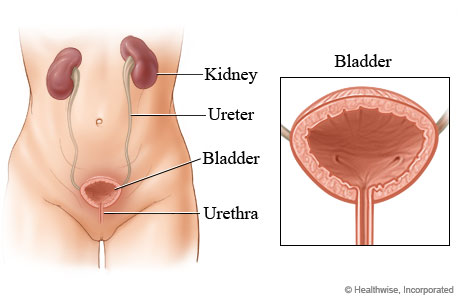Urinary Tract Infections
Most females develop a urinary tract infection at some point in their lifetime. Due to their body anatomy, the urethra is closer to the opening, making it easier for bacteria to travel. This is a major reason why females are more likely to get urinary tract infections than men. In most cases, UTIs demand no medical treatment and go away on their own or may be easily treatable with a set of antibiotics prescribed by the gynaecologist.
A female with recurrent UTIs is suggested to follow preventive measures and practise intimate hygiene and safe sex to minimise her risk of recurrent UTIs. Untreated, chronic or recurrent urinary tract infections may cause more damage to your body with worsening symptoms. It is best to consult a doctor for preventive measures, lifestyle changes and special diet, if needed to prevent and treat recurrent urinary tract infections. Females who experience symptoms of urinary tract infection even after finishing medications or if the symptoms come back some days later should also consult a gynaecologist for timely treatment of chronic or recurrent urinary tract infections.
7 Tips to avoid Recurrent Urinary Tract Infections
-
Never hold the urge to pee
Holding you pee for long or waiting for a long time to pee, even when you need to, is a major cause of recurrent urinary tract infections. Urinating and emptying your bladder frequently puts pressure on the bacteria in the urinary tract and helps to clear them out. Frequent urination also reduces the amount of time that the bacteria in the urine are exposed to the cells in the urinary tract, reducing the risk of an infection. Always pee as soon as the urge strikes to help prevent and treat recurrent urinary tract infections.
-
Keep yourself hydrated- Always
Drinking enough water throughout the day is one of the easiest steps to help prevent recurrent urinary tract infections. Drinking water all throughout the day helps the organs of the urinary tract remove bacteria and waste from the body effectively while retaining the vital nutrients and electrolytes that the body needs. Staying hydrated also dilutes the urine and will result in more urination, which regularly flushes out the bacteria and makes it harder for the bacteria to cause a urinary tract infection. On average, an adult female should drink at least six to eight 8 glasses of water each day.
-
Drink cranberry juice everyday
Cranberry juice is one of the most successful and well-established natural remedies for recurrent UTIs. c have cranberry juice has been traditionally used to help clear general infections and speed up the recovery time of wounds. Cranberry juice contains antioxidants, including polyphenols, which have antibacterial and anti-inflammatory properties and may prevent recurrent urinary tract infections.
-
Maintain regular intake of probiotics
Probiotics can help prevent the urinary tract infections and keep the urinary tract healthy and free from the harmful bacteria. In particular, a group of probiotics known as lactobacilli can help in treating and preventing urinary tract infections. Here is how probiotics can help you keep your urinary tract healthy and prevent urinary tract infections.
- Prevents harmful bacteria from attaching to the urinary tract
- Produces hydrogen peroxide in the urine
- Lowers the pH of the urine, making it less favourable for the bacteria to form an infection.
Probiotics occur in various fermented and dairy products, including yogurts, kefir, some types of cheese and sauerkraut
Females can also take probiotic supplements, which are available in the form of a capsule or a powder form. Consult your doctor before starting any new supplements if you have recurrent urinary tract infections.
-
Always wipe from front to back
Many urinary tract infections develop when the bacteria from the anus (from the rectum) reaches the urethra, which leads to a urinary tract infection. This commonly happens when the female wipes from back to front. having vaginal intercourse after anal intercourse without cleaning can also cause urinary tract infections due to bacteria from the anal region.
Once the bacteria has reached the urethra, it can travel up into the other urinary tract organs and cause infections. After peeing, always wipe from front to back to prevent bacteria from reaching the genitals. Use separate toilet papers to wipe the genitals and the anus.
-
Practice good intimate hygiene and safe sex
Sexual intercourse introduces the bacteria and other microbes to the urinary tract. Practicing good sexual hygiene can reduce the risk of catching urinary tract infections during intercourse and other sexual acts. Simple tips to maintain good sexual hygiene include-
- Urinate before and immediately after having sex
- Use a condom
- Wash your genitals before and after sexual acts or intercourse
- Wash your genitals or change condoms if switching from anal to vaginal sex
-
Ensure daily intake of vitamin C
Vitamin C is an antioxidant which helps in improving the immune system functioning. This essential nutrient also reacts with nitrates in the urine to form nitrogen oxides, which can kill bacteria. Vitamin C can lower the pH level of the urine, making it less likely for the bacteria to survive or cause a urinary tract infection.
Just like cranberry juice, vitamin C has been used for thousands of years in various forms to treat urinary tract infections. More research is being conducted to confirm the effectiveness and how vitamin C intake can prevent or treat urinary tract infections.
Females over the age of 19 should get at least 75 mg vitamin C every day. Females who smoke should take an additional 35 mg vitamin C each day.
Source- https://www.europeanurology.com/article/S0302-2838(16)30250-0/fulltext
When to see a gynaecologist for recurrent urinary tract infections ?
If a female suspects that she might have a UTI or is already aware that she has recurrent urinary tract infections, she should speak to the best gynaecologist for advice on the best way to treat and prevent recurrent urinary tract infections.
Common signs and symptoms of recurrent UTIs include:
- Increased urination
- Peeing more often that the usual
- Dysuria (pain or burning sensation when urinating)
- Low fevers
- Feeling pressure or cramps in the lower abdomen region
- Changes in the color or smell of the urine
- Cloudy urine or blood in urine
- Experiencing symptoms of UTI after completing the course of medication
Antibiotics are not always necessary to treat recurrent urinary tract infections. In case of recurrent urinary tract infections, the female should make certain lifestyle changes and increase intake of probiotics, cranberry juice and maintain optimum intake of vitamin C to prevent UTIs from coming back again and again. Even if you are following lifestyle habits and self care tips for urinary tract infections, it is still important to keep in touch with your gynaecologist to mark progress and find out what works best for you. Consulting a doctor for the treatment of recurrent urinary tract infection in Delhi will reduce your risk of recurrent UTIs.







 Users Today : 678
Users Today : 678 Users Yesterday : 887
Users Yesterday : 887 This Month : 11366
This Month : 11366 Total Users : 792357
Total Users : 792357